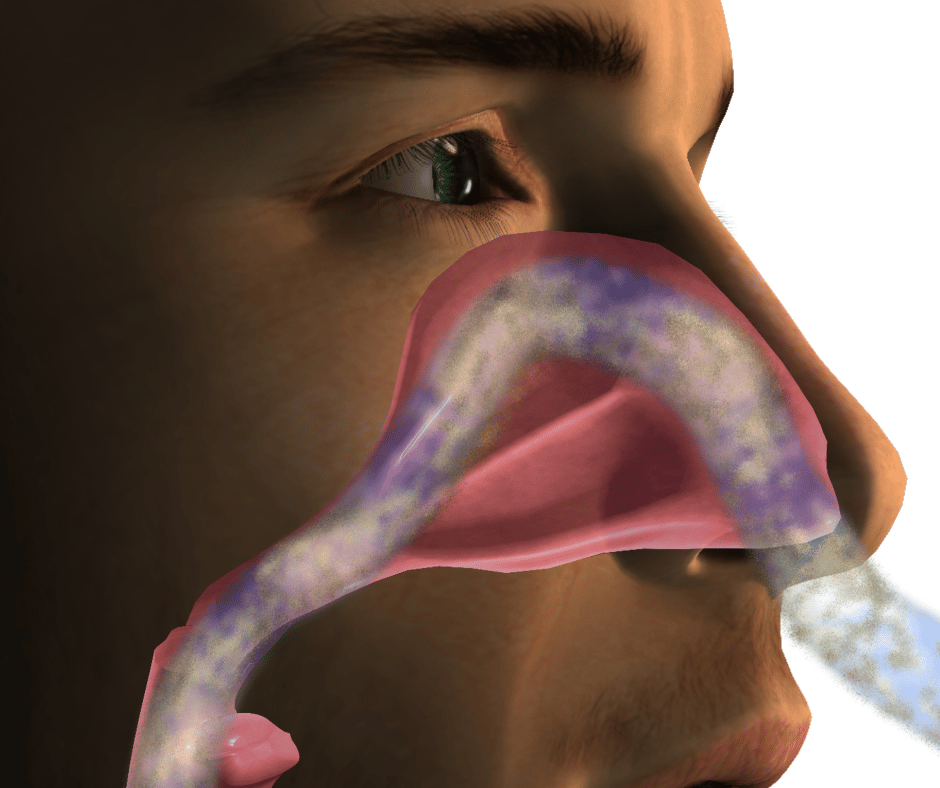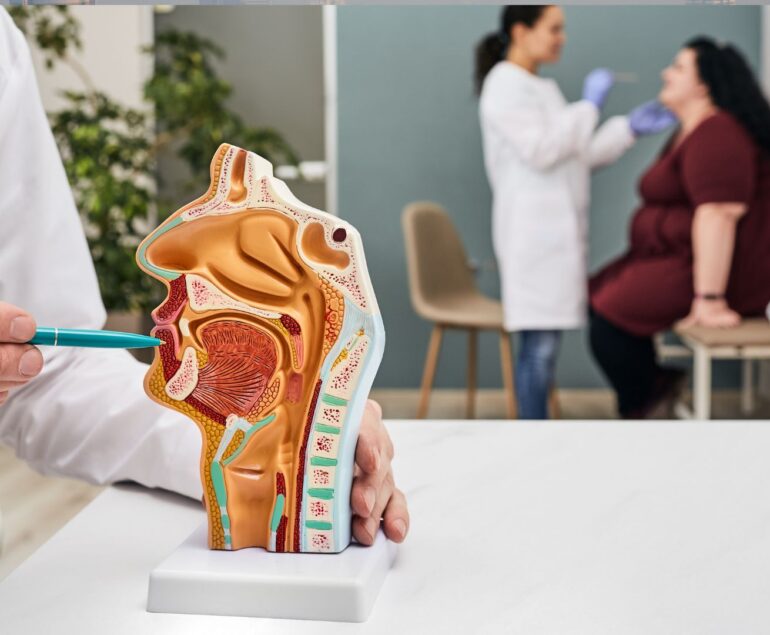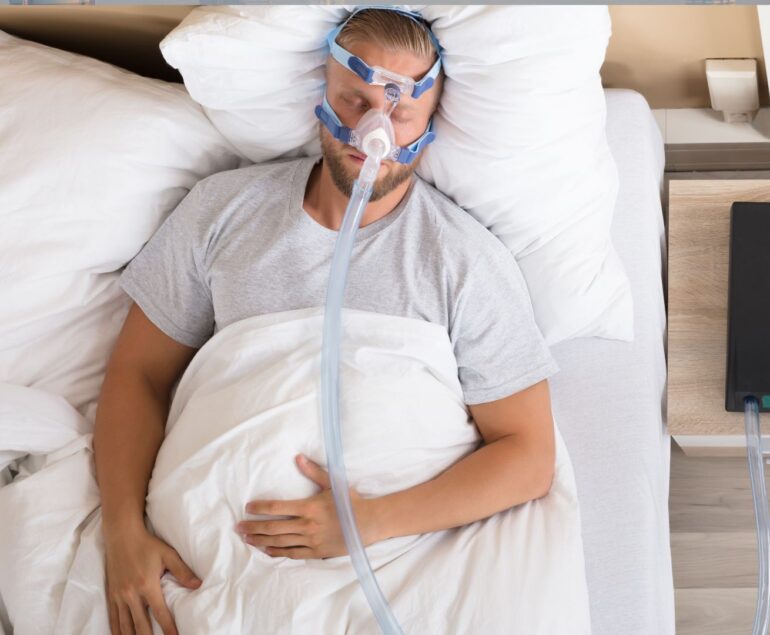Nasal polyps are growths that form in the lining of the nose or sinuses. They are not cancerous. They can cause stuffy nose, runny nose, and a lessened sense of smell, among other things. In this blog post, we’ll talk about the signs of nasal polyps, how to tell if you have them, and how to treat them.
Symptoms of nasal polyps
Different people can feel different things when they have nasal polyps, and some people may not feel anything at all. But these are some of the most common signs of nasal polyps:
- Nasal congestion: Nasal polyps can make it hard to breathe through the nose because they block the nasal passages.
- Nasal polyps can cause a runny nose that may be watery or thick and discolored.
- Reduced ability to smell: Nasal polyps can affect a person’s sense of smell, making it harder to smell things.
- Postnasal drip is caused by a buildup of mucus in the back of the throat. This can be caused by nasal polyps.
- Facial pain: In some cases, nasal polyps can cause facial pain, particularly around the eyes or forehead.
Diagnosis of nasal polyps
A doctor will do a physical exam and may also order imaging tests like a CT scan or MRI to figure out if you have nasal polyps. They may also do a nasal endoscopy, which involves putting a thin, flexible tube with a camera into the nasal passages to look at the nasal polyps.
Treatment options for nasal polyps
The best way to treat nasal polyps depends on how bad the symptoms are and how big and where the polyps are. Some common ways to treat patients are:
- Nasal corticosteroids can help reduce swelling in the nose and make nasal polyps smaller. Depending on what caused the nasal polyps, you may also be given other medicines like antihistamines or antibiotics.
- Surgery: Sometimes, you may need surgery to get rid of nasal polyps. Most of the time, this is only suggested if other treatments haven’t worked.
- Allergy shots: If allergies are making your nasal polyps worse, you may be given allergy shots to help ease your symptoms.
- Changes to your lifestyle, like staying away from smoke and pollution and using a humidifier, can help reduce the symptoms of nasal polyps.
In conclusion, nasal polyps are noncancerous growths in the nasal passages or sinuses that can cause stuffy nose, runny nose, and a reduced ability to smell. If you are experiencing these symptoms, it is important to see a healthcare provider for an accurate diagnosis and appropriate treatment. Most people with nasal polyps can get rid of their symptoms and improve their quality of life with the right care.
About Author:
Dr. Vivek Kumar Pathak: Renowned ENT Surgeon, Senior Professor, and Founder.
Dr. Pathak, ENT surgeon at Kailash Hospital, Senior ENT Professor at Sharda University, and founder of Entegrity Care, brings expertise and innovation to healthcare. Discover the visionary behind Doxtreat Healthcare, shaping the future of ENT care.
Website www.drvivekpathak.com
Call +917838450942
WhatsApp +91 78384 50942
Book an appointment with Dr. Vivek kumar Pathak by filling the form.





